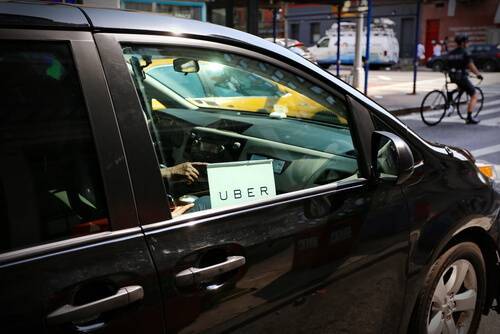
Uber and Lyft: Are the drivers really independent contractors?

Recently, a tragic accident happened in the Las Vegas area where an Uber driver was killed while working for Uber. [1] The driver, transporting passengers, was hit by a suspected drunk driver and killed. Based on working for Uber, the question becomes whether workers’ compensation will cover the deceased benefits.
As everyone is likely aware, Uber and Lyft are in Nevada as ride-share options. These are very popular options for transportation and offer a competitive alternative to taxis. Uber and Lyft “employ” drivers who are compensated for rides they give. However, Uber and Lyft consider the drivers independent contractors and not employees. Accordingly, upon information and belief, Uber and Lyft do not provide workers’ compensation insurance in Nevada.
However, Nevada uses a five-part test to determine whether an employee/employer relationship exists under the industrial insurance act: 1) degree of supervision; 2) source of wages; 3) existence of right to hire and fire; 4) right to control hours and location of employment; and 5) extent to which workers’ activities further general business concerns of alleged employer. Whitely v. Jakes Crane & Rigging, 95 Nev. 819, 603 P.2d 698 (1979). Keep in mind, just because an employer labels someone as an independent contractor, does not mean that by law they actually are.
The issue of whether Uber and/or Lyft must provide workers’ compensation in Nevada has not been litigated. It has however in federal court in California. O’Connor v. Uber Technologies, 82 F.Supp.3d 1133 (9th Cir. 2015). The court did find that Uber drivers were employees.
Using current Nevada law and the five-part test, it would appear as though the Uber driver that was killed could be considered an employee. Uber drivers are supervised since they are given the rides and where to go, and are also rated by the passengers. If the ratings are low, Uber has the right to terminate them, and they will. Further, Uber pays the wages and controls the locations of all of the rides that are dispatched to the Uber drivers. Although Uber drivers control their own schedules, it appears that the schedule is really the only thing that the drivers can control. Therefore, it is likely that there is in fact an employee-employer relationship. Based on the above analysis, the driver who was killed in the tragic accident while working for Uber may be entitled to workers’ compensation benefits in Nevada.
[1] https://lasvegassun.com/news/2017/feb/14/uber-driver-killed-nlv-crash-transport-passengers/
 Clear
Clear Permanent Partial Disability (“PPD”) Rating: Are you Entitled to One?
Permanent Partial Disability (“PPD”) Rating: Are you Entitled to One? 